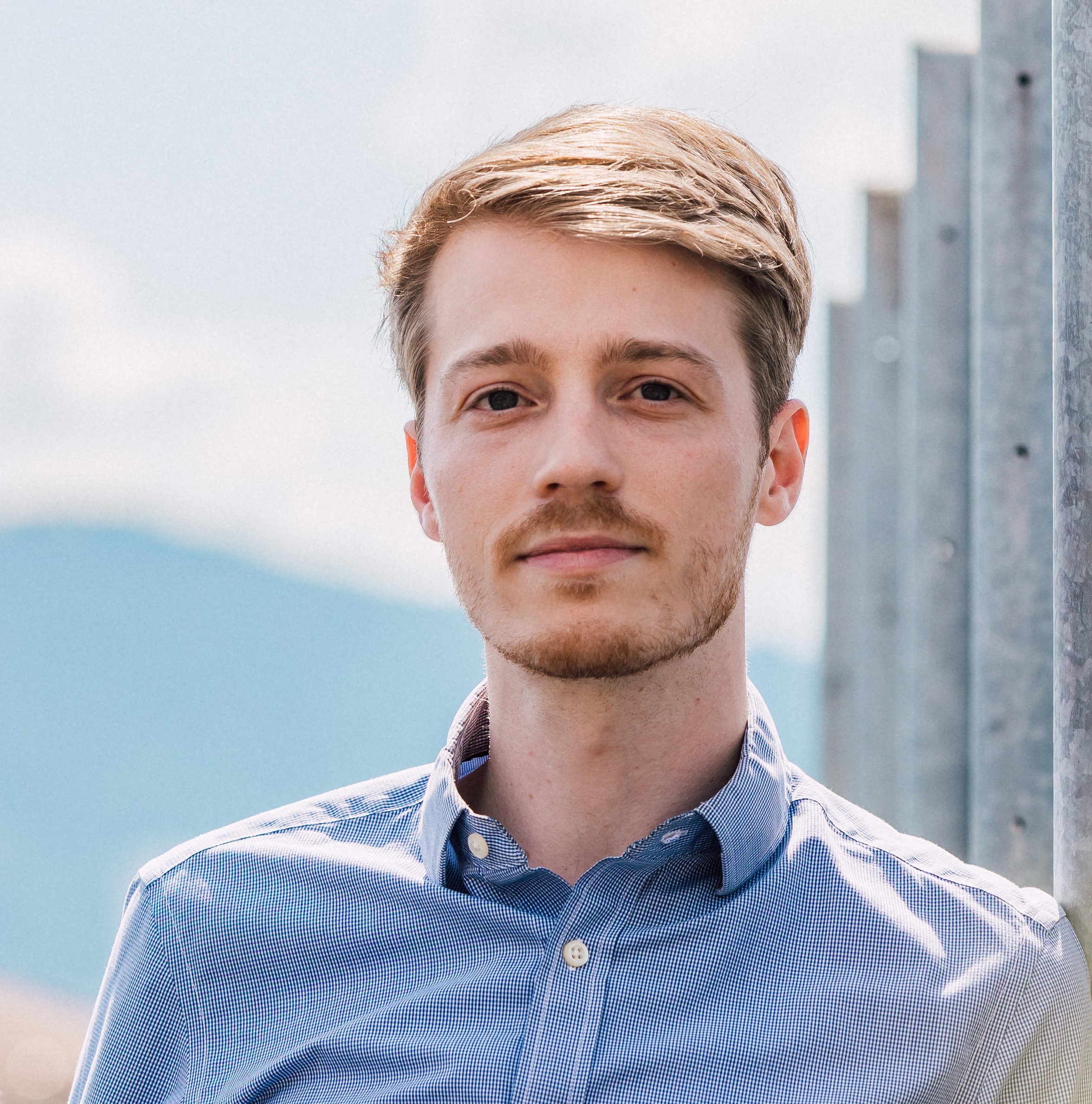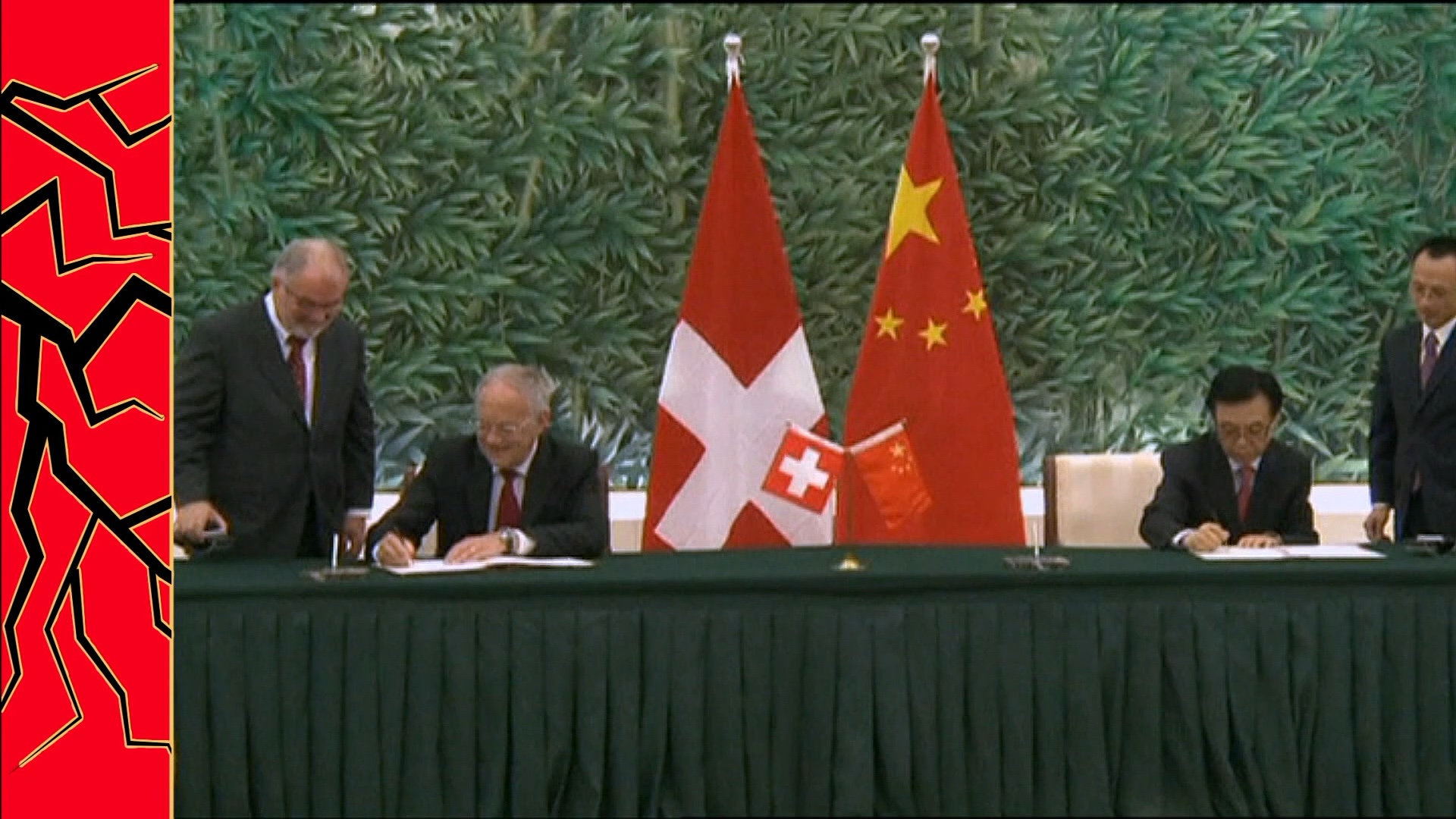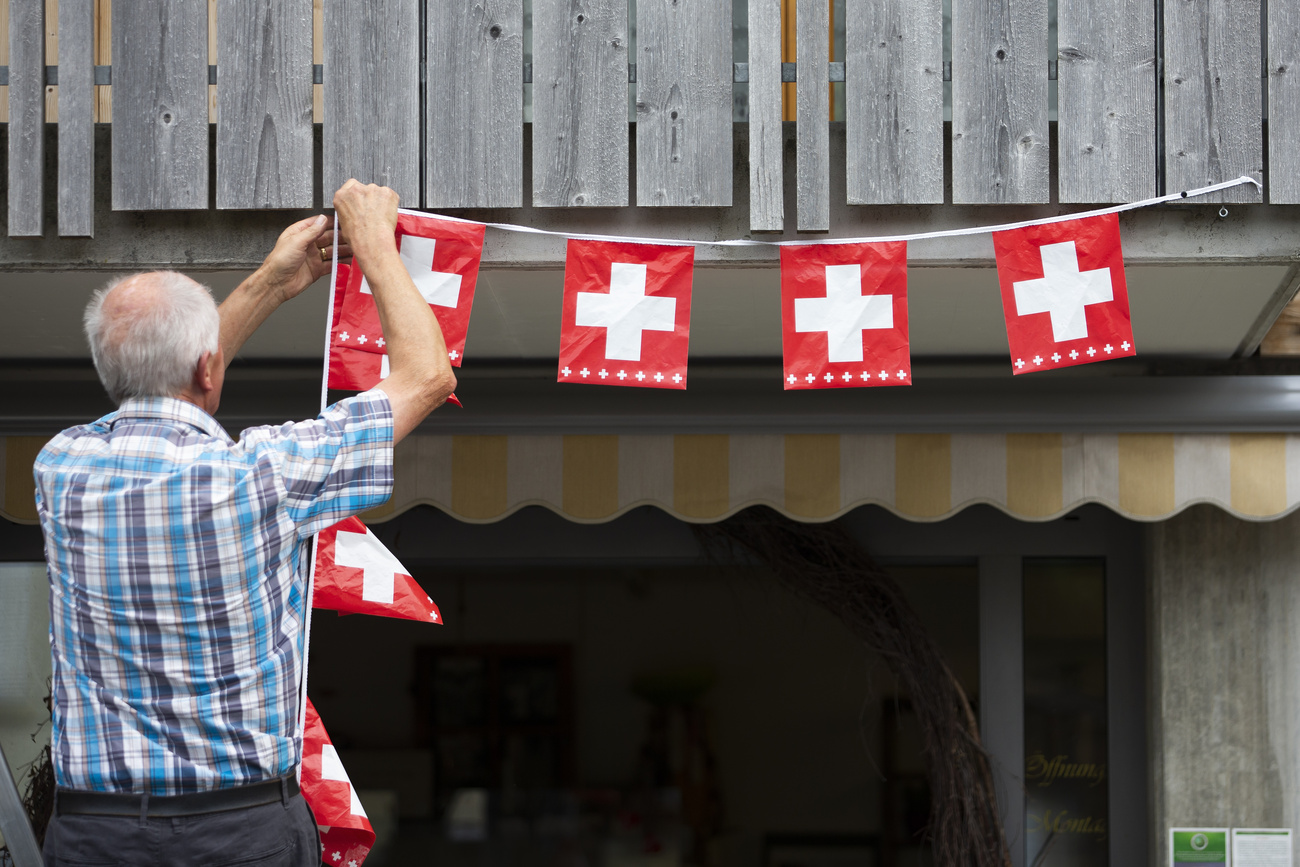
Benno Zogg: ‘Russia is becoming weaker, and China stronger’

All eyes may be on the war in Ukraine, but it is far from the only country in Eurasia currently affected by armed conflict.
Three decades after the collapse of the Soviet Union, tensions are high between several successor states. SWI swissinfo.ch speaks to security analyst Benno Zogg about Russia’s role and China’s influence on the region.
SWI swissinfo.ch: There is a lot going on in some of the former countries of the USSR. Has Russia as the force for order lost its influence on these republics?
Benno Zogg: The first question is to what extent Russia really was a force for order to begin with. It used to act as a mediator in disputes or as a kind of security guarantor for some of its allied states in the region. But with several armed conflicts going on in the area, Russia’s role has been called into question. It has not gone unnoticed that Russia is reluctant or unable to make large investments in these countries. That’s why some of them are now looking for other partners.

SWI: Azerbaijan has attacked Armenia, which is one of Russia’s allies. Not far from the battlefields, Russian soldiers are securing a fragile peace that has prevailed since the war over Nagorno-Karabakh in 2020. Is Azerbaijan afraid of Russia?
B.Z.: It is. Russia played a stabilising role in this conflict, due on the one hand to its alliance with Armenia and the military cooperation between the two that includes a military base in the country. On the other hand, it’s also due to its good relations with Azerbaijan. For 30 years, not much happened in the Nagorno-Karabakh conflict despite occasional outbreaks of violence. This changed when war broke out in the region in 2020, when Turkey’s active role on the Azerbaijani side became evident.
Azerbaijan has repeatedly put Russia to the test this year by slowly advancing into Armenia’s territory, but Russia has just reacted verbally. They knew that Russia was consumed with the war in Ukraine and was probably withdrawing some of its troops from Nagorno-Karabakh to fight in Ukraine. But then Azerbaijan launched an attack that was not aimed at Nagorno-Karabakh but at Armenian state territory. Russia did not react, and this has damaged its alliance with Armenia. Turkey seized the opportunity and expanded its influence in the region.
SWI: Central Asia has also seen some fighting, such as the conflict between Kyrgyzstan and Tajikistan. Is this a coincidence?
B.Z.: Yes and no. This particular conflict has seen hundreds of skirmishes and clashes over the last three decades. The latest outbreak was violent but was caused by tensions between the two countries that have existed for some time.
I think several factors come together in this case. On the one hand, there are some political leaders who are increasingly pursuing a nationalistic policy and want to make a name for themselves. On the other hand, Russia has withdrawn its troops from these two countries. This dangerous mix has probably triggered an escalation.
During the latest border conflict between Kyrgyzstan and Tajikistan, there was no moderating power that could have de-escalated the situation, not even Russia. The Collective Security Treaty Organization (CSTO), which is a counterweight to NATO and is dominated by Russia, has turned out to be rather ineffective in this case.
SWI: Kazakhstan was considered one of Russia’s closest allies in Central Asia. But it has kept its distance since the beginning of the war in Ukraine. Why is that?
B.Z.: Kazakhstan is in a delicate position. It depends greatly on Russia economically, which is why it has always pursued a balanced foreign policy. It’s actually remarkable that it has been able to withstand Russia’s pressure. The unique Kazakh pragmatism allows the country to nurture its good relations with Russia and support Ukraine at the same time.
It remains a balancing act. Kazakhstan sees Russia’s weakness as both an opportunity and a reason to seek alliances with other countries, such as China, Turkey and even Europe. This trend has accelerated significantly since Russia’s invasion of Ukraine, not least because the Kazakh government fears for its own security.
SWI: The break-up of the Soviet Union happened relatively smoothly. Do you think that what is happening now is what many feared would happen at the time – namely, that the region would drift into chaos?
B.Z.: This is a bold theory and not entirely unfounded. The individual situations in the former Soviet states are different but they all stem from the break-up of the Soviet Union. It is not by chance that the most violent conflicts of the time – the Nagorno-Karabakh conflict and the civil war in Tajikistan – still have an impact today. Many issues remain unsolved, such as disputes over national borders and natural resources.
We must not forget that the politicians who are now in charge are children of the Soviet Union, which means that their political style has not changed, and neither have the strained relations between some of these countries.
This does not necessarily lead to chaos, however. Local conflicts may be convenient for individual rulers, but major wars certainly are not. Their main interest is to sustain their regime, which is why I don’t think there is a risk of a domino effect.
SWI: China’s president Xi Jinping’s first state visit since the outbreak of the pandemic was to Kazakhstan. Was this a good opportunity for China to expand its influence in Central Asia?
B.Z.: Basically yes. China has been expanding its influence in the region for a while, and the process has recently gained momentum. But the country has its own problems and is facing economic stagnation, isolation due to its zero-Covid policy and the slowing down of international Chinese projects, such as the belt-and-road initiative.
Xi Jinping is trying to give impetus to everything that stood still during the pandemic. Russia and China still need each other on the international stage, even though Beijing has changed its tone towards Moscow since the start of the war. But when it comes to the flow of trade, the influence on the region and technology, Russia is getting weaker [and] China is getting stronger.
It is certainly not in China’s interest to be lumped together with Russia. It’s more interested in presenting itself as a reliable political actor and dynamic economic partner in the global sense, but especially in Central Asia. In other words, it represents the complete opposite of what Russia stands for at the moment.
SWI: At least rhetorically the ranks are closing against the West, as we saw during the recent Shanghai Cooperation Organisation Summit (SCO) in Samarkand, Uzbekistan. Or do you think this has been the case for a long time and is only becoming apparent now?
B.Z.: The tendency to form new alliances certainly exists. China and Russia are open about it and invoke a new multipolar world order that will no longer be dominated by the United States and international institutions. Other blocs will be formed, and China and Russia will be one of them.
China is exerting more pressure internationally. It wants to impose its norms and technologies around the globe and get other countries to position themselves. But I think that these alliances will be more flexible than during the Cold War. Thematically, you can ally with one bloc or the other, but a lot of things can play out in the space between.
This was evident during the summit, when the autocratic regimes agreed to stick together politically, above all for the sake of their own stability. But economically they still prefer diversity, which is a tough but necessary balancing act for smaller states.
That’s why I don’t believe in the democracy-versus-autocracy narrative. It does not suit countries that like to toy with ambivalence, in part because they have no other option.
Benno ZoggExternal link is a Senior Researcher and Team Head of the Swiss and Euro-Atlantic Security TeamExternal link at the Center for Security Studies (CSS) of the federal technology institute ETH Zurich.
Adapted from German by Billi Bierling/gw

More
How China infiltrates Switzerland

In compliance with the JTI standards
More: SWI swissinfo.ch certified by the Journalism Trust Initiative
















![The four-metre-long painting "Sonntag der Bergbauern" [Sunday of the Mountain Farmers, 1923-24/26] had to be removed by a crane from the German Chancellery in Berlin for the exhibition in Bern.](https://www.swissinfo.ch/content/wp-content/uploads/sites/13/2025/12/01_Pressebild_KirchnerxKirchner.jpg?ver=a45b19f3)











You can find an overview of ongoing debates with our journalists here . Please join us!
If you want to start a conversation about a topic raised in this article or want to report factual errors, email us at english@swissinfo.ch.